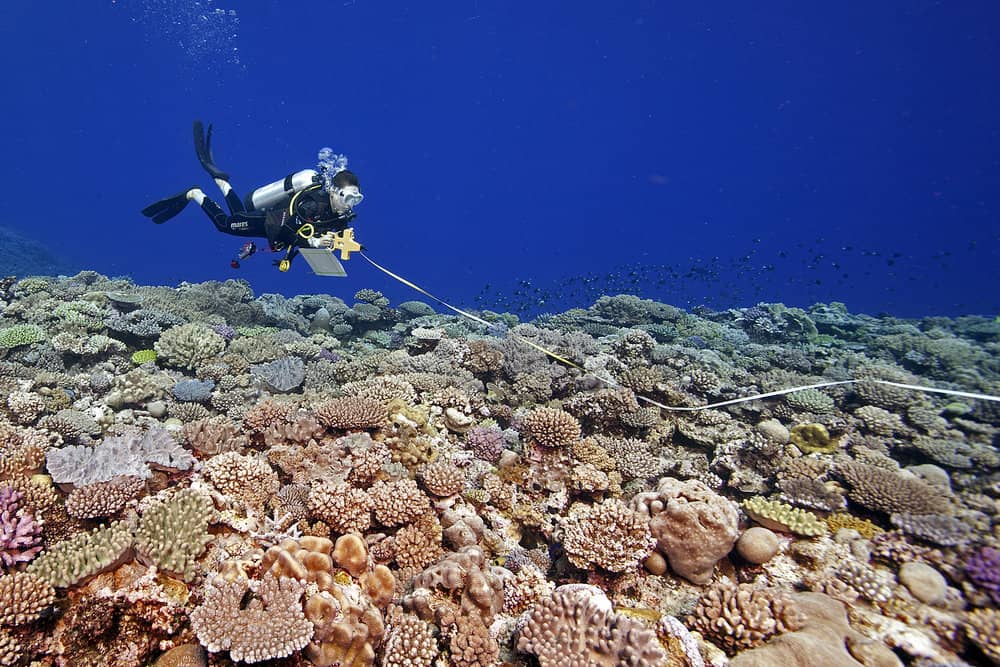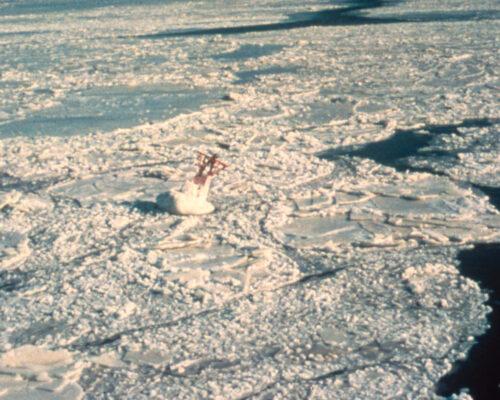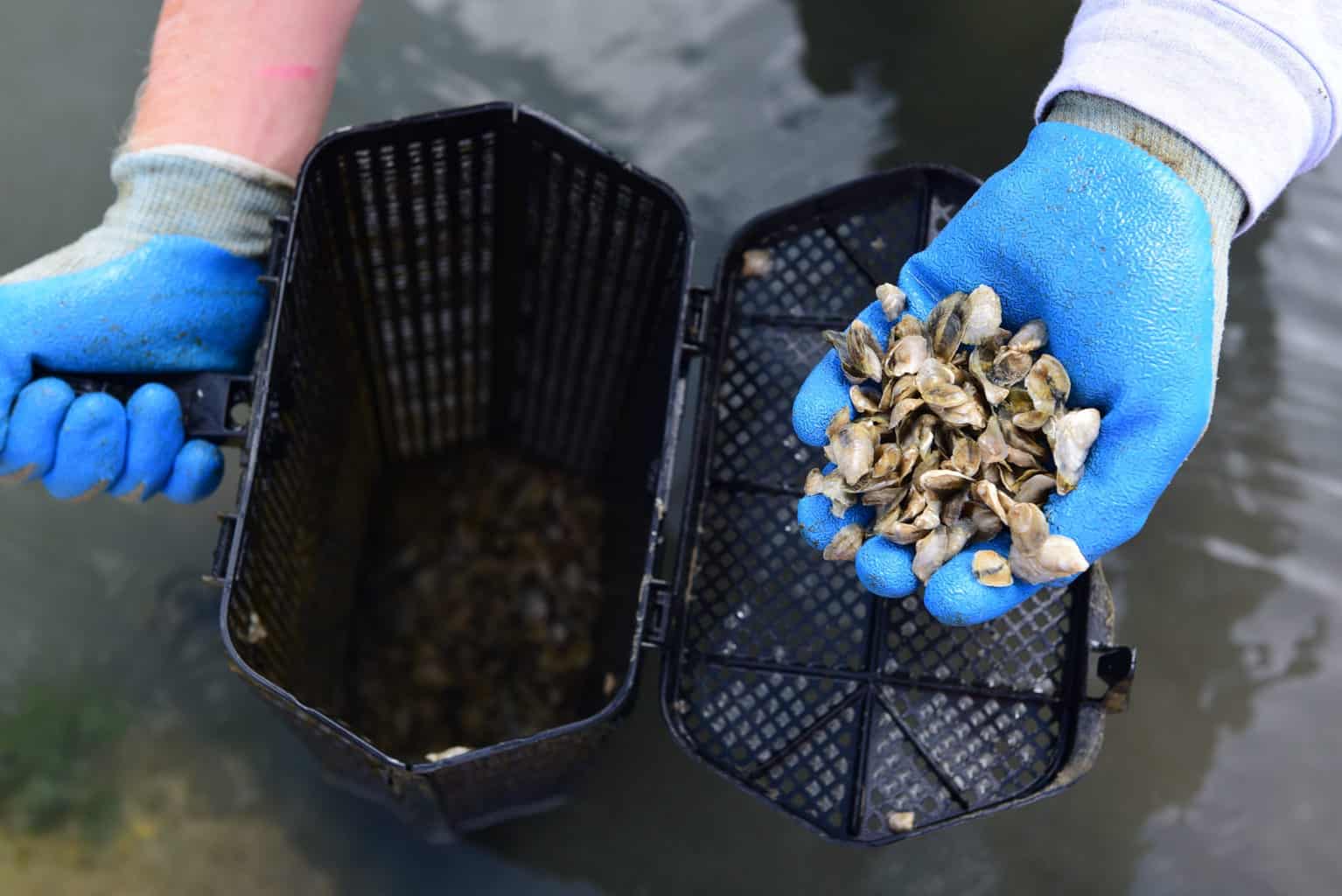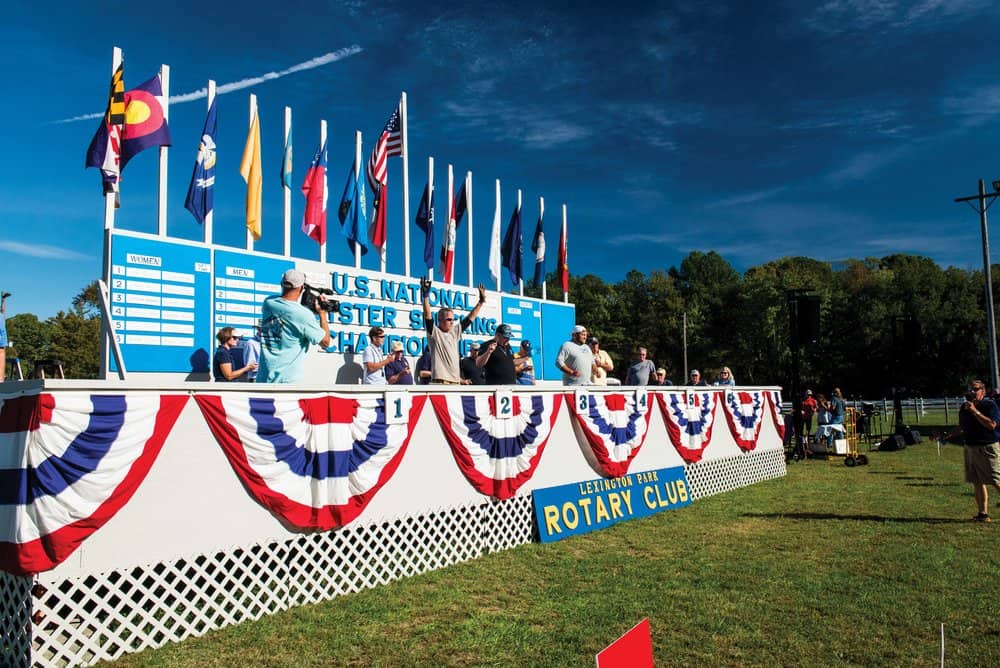In January, Chesapeake Bay Magazine joined the Coastal Conservation Association at the Boatyard Bar & Grill in Annapolis to host a showing of An Ocean Mystery: The Missing Catch, a remarkable film co-produced by the Khaled bin Sultan Living Oceans Foundation and the Smithsonian Channel. The film charts the path of a massive project to assess the magnitude of unreported fish harvesting around the world including illegal fishing, resort-based sport fishing, and third-world commercial fishing. The findings present shocking signs of collapsing fish populations as more and more fishing effort produces dwindling fishing success. The film then offers solutions and hope for a sustainable future.
The foundation’s director, Philip Renaud, and filmmaker Alison Barrat introduced the film to a packed audience at the pub. We were surprised to learn that their commute to the event was a mere two-block walk from their new offices in Eastport. We wanted to know more.
In interviews with Renaud and his staff, we learned that the foundation was established in 2000 by Saudi Arabian Prince Khaled bin Sultan, grandson of the first monarch and founder of the Kingdom of Saudi Arabia. Prince Khaled is an avid scuba-diver, and the rapid deterioration of one of his favorite Red Sea coral reefs inspired him to empower scientists to study the issues on a global scale and find solutions to the problems. The foundation’s mission is to serve as a global environmental science organization to help preserve, protect and restore the world’s
oceans and aquatic resources through research, education and outreach.
So far, the foundation has launched research expeditions and partnered with other organizations in the Sea of Cortez, the Virgin Islands, Bermuda, Senegal, The Seychelles, Indonesia, the Red Sea, the Bahamas, the Caymans, Bonaire, St. Kitts & Nevis, French Polynesia, the Galapagos, Colombia, Jamaica, the Austral Islands, Cook Islands, Fiji, Tonga, New Caledonia, Australia, Solomon Islands, Palau, and the British Indian Oceans Territories. The foundation’s 220-foot vessel is fully equipped for research and global travel, and capable of launching and recovering dive boats and a seaplane.
Meanwhile, the foundation has developed and funded an education portal to increase ocean literacy and coral reef awareness, the Science Without Borders Challenge—a free world-wide art contest for primary and secondary school students offering scholarship prizes to the winners, a high school mangrove education curriculum in Jamaica and the Bahamas for biology students, and a Teacher at Sea Travel Program onboard the foundation’s research vessel. The foundation also hosts workshops, and it has awarded post graduate-level and post-doctorate fellowships.
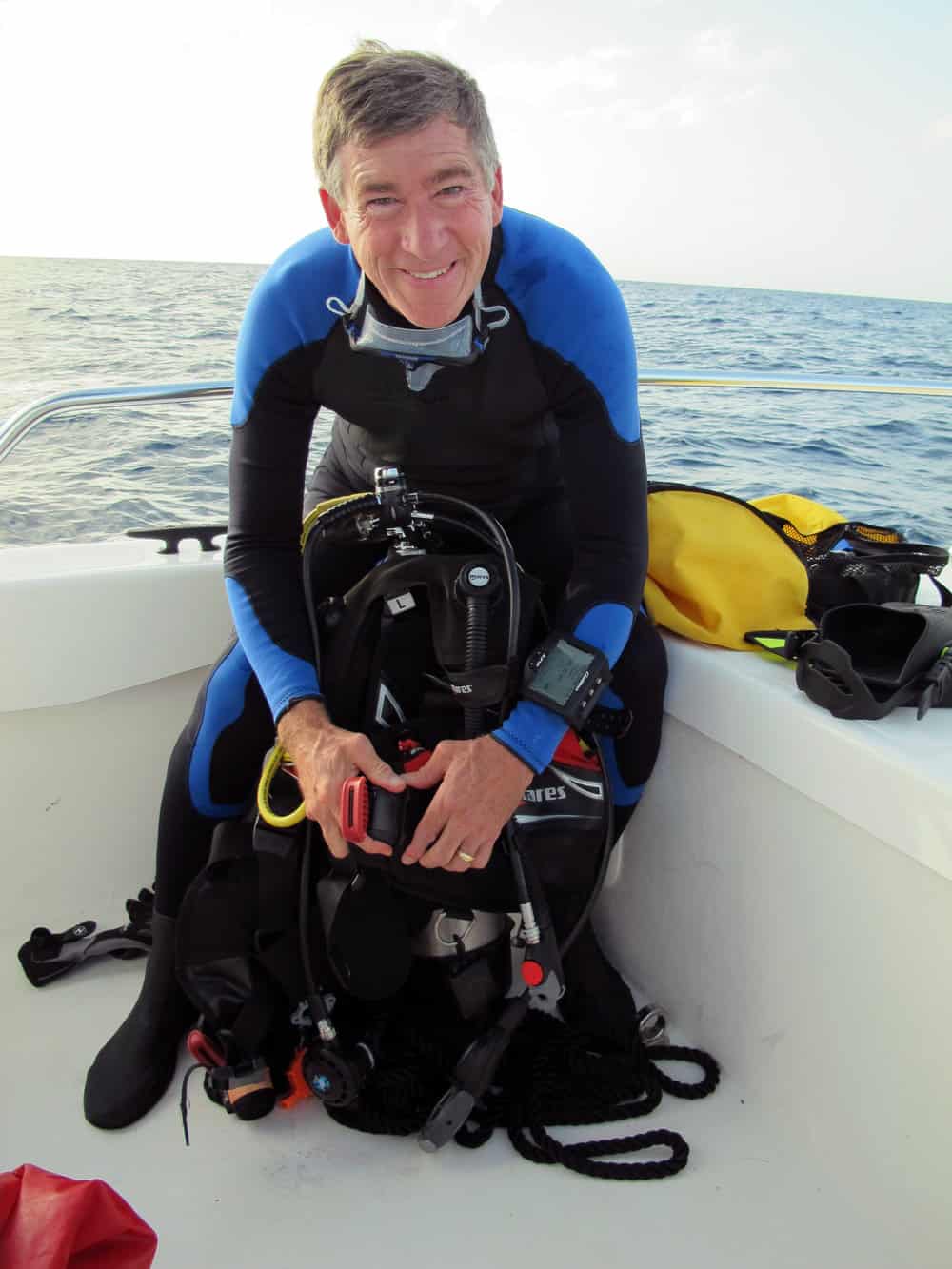
So, why Annapolis as a home base? The Living Oceans Foundation began in East Lansing, Michigan with a connection to Michigan State but soon moved to Landover, Md. to be closer to the Washington power centers. When a change of office location became necessary, the foundation looked toward the Bay and the vibrant Annapolis conservation community. Executive director Captain Philip Renaud USN (ret) spent four years on the Yard along the Severn River as a midshipman before sailing the world for 25 years onboard ships as a Naval oceanographer. He knows Annapolis well. He’s an avid sailor, Eastport Yacht Club member and co-chairman of the club’s environmental committee. He says, “Annapolis has so much environmental conservation activity in gear, with major organizations, institutions and federal and state offices here. It was clearly a good fit for us, and a place where we could be involved professionally and socially. We love it here.”
The foundation and staff members have eagerly partnered with local conservation and education organizations such as Annapolis Green and the Annapolis Maritime Museum. “Annapolitans and other Chesapeake Bay community members are thirsty for knowledge about actions they can take to improve the health of the Chesapeake Bay and the oceans,” says Renaud. “We share that eagerness, and we want to help.”
Renaud’s oceanography perspective is a familiar reminder of why we need effective research, education and communication in developing a sustainable future:
“The health and vitality of the world’s oceans has been in serious decline for centuries, accelerating throughout the industrial age. Scientists and conservationists agree that our oceans are experiencing a crisis with frightening consequences to human health and welfare. Most of this modern ocean crisis can be attributed to the rich bounty it offers and the insatiable demand of an over-populated Earth.
“Chesapeake Bay oyster reefs have a very similar ecology to the tropical coral reefs we focus on. One of the best conservation initiatives ever implemented is the pollution diet that the six states are working to adhere to. Nutrient pollution has negatively impacted important Bay species such as submerged aquatic vegetation, blue crabs, oysters and fish. The same pollution diet approach works to improve coral reef health. Once local stressors are reduced, nature demonstrates remarkable resilience.
“It’s a privilege and an obligation to survey the world’s coral reefs. The privilege is in being able to observe these amazingly beautiful underwater gardens brimming with life, and it’s a serious obligation to effectively document their decline. It motivates us to find the scientific answers and help create solutions to manage the problems.”

